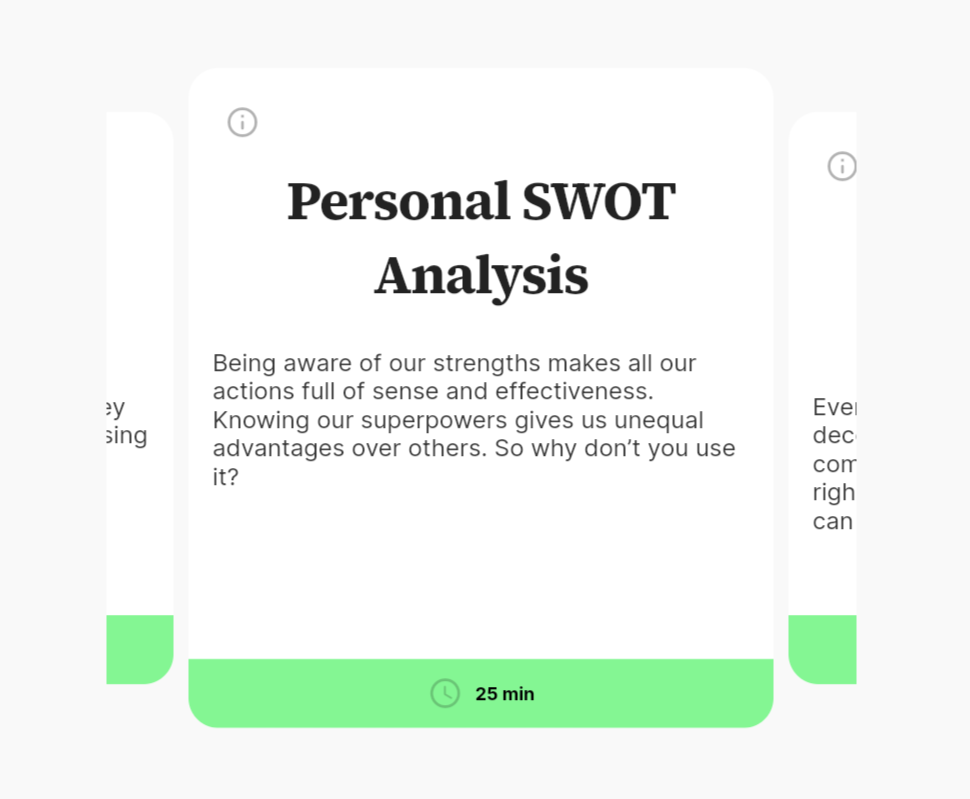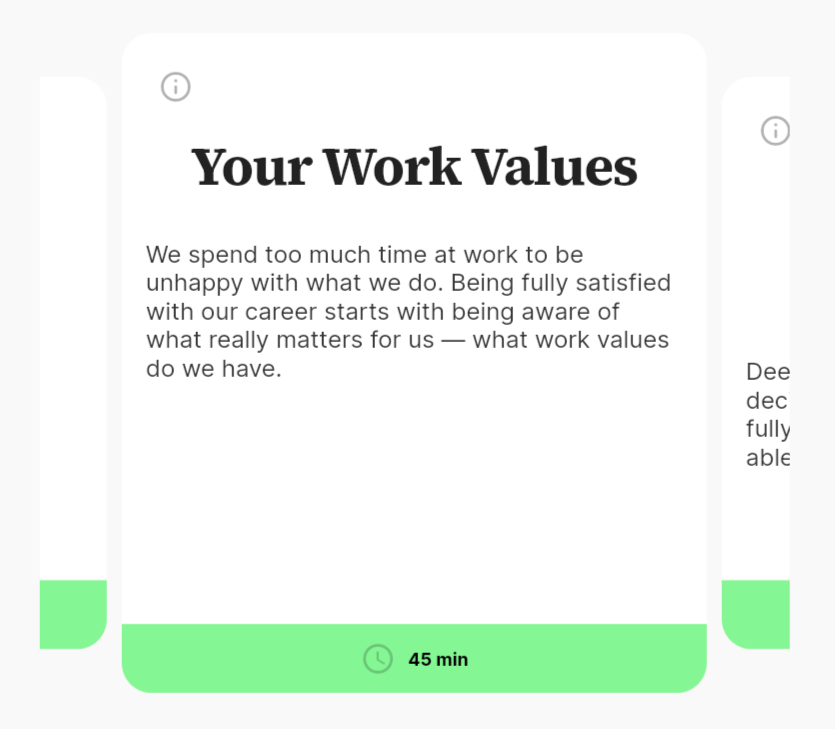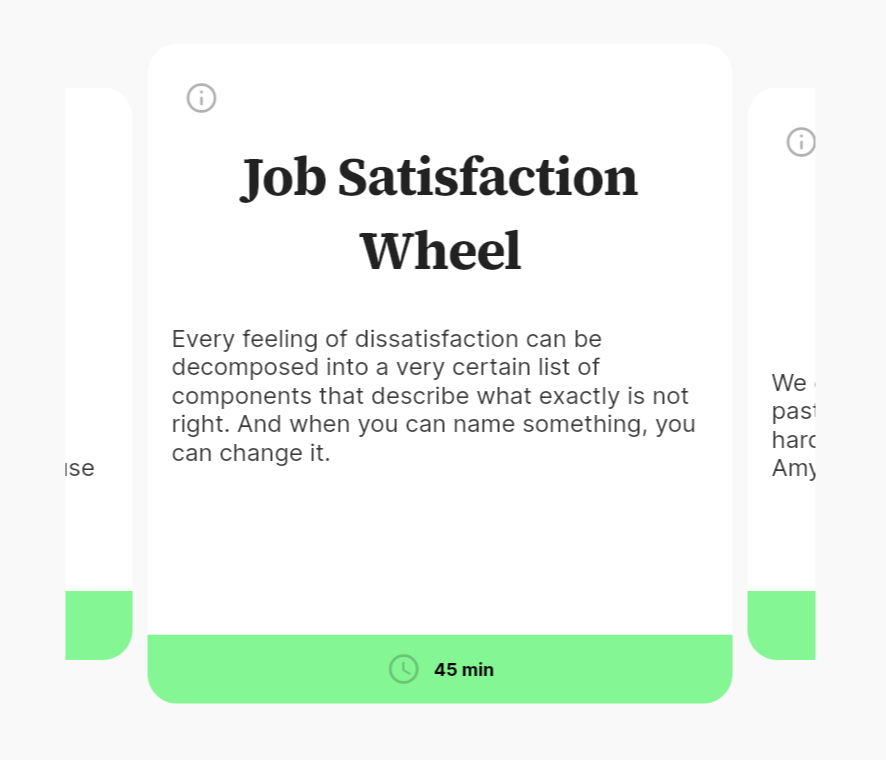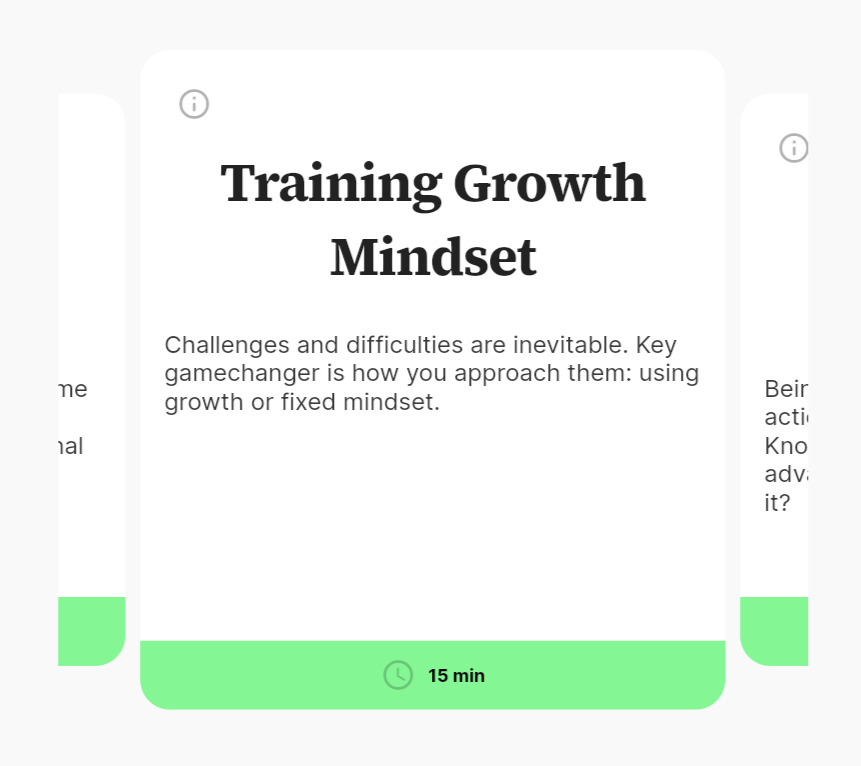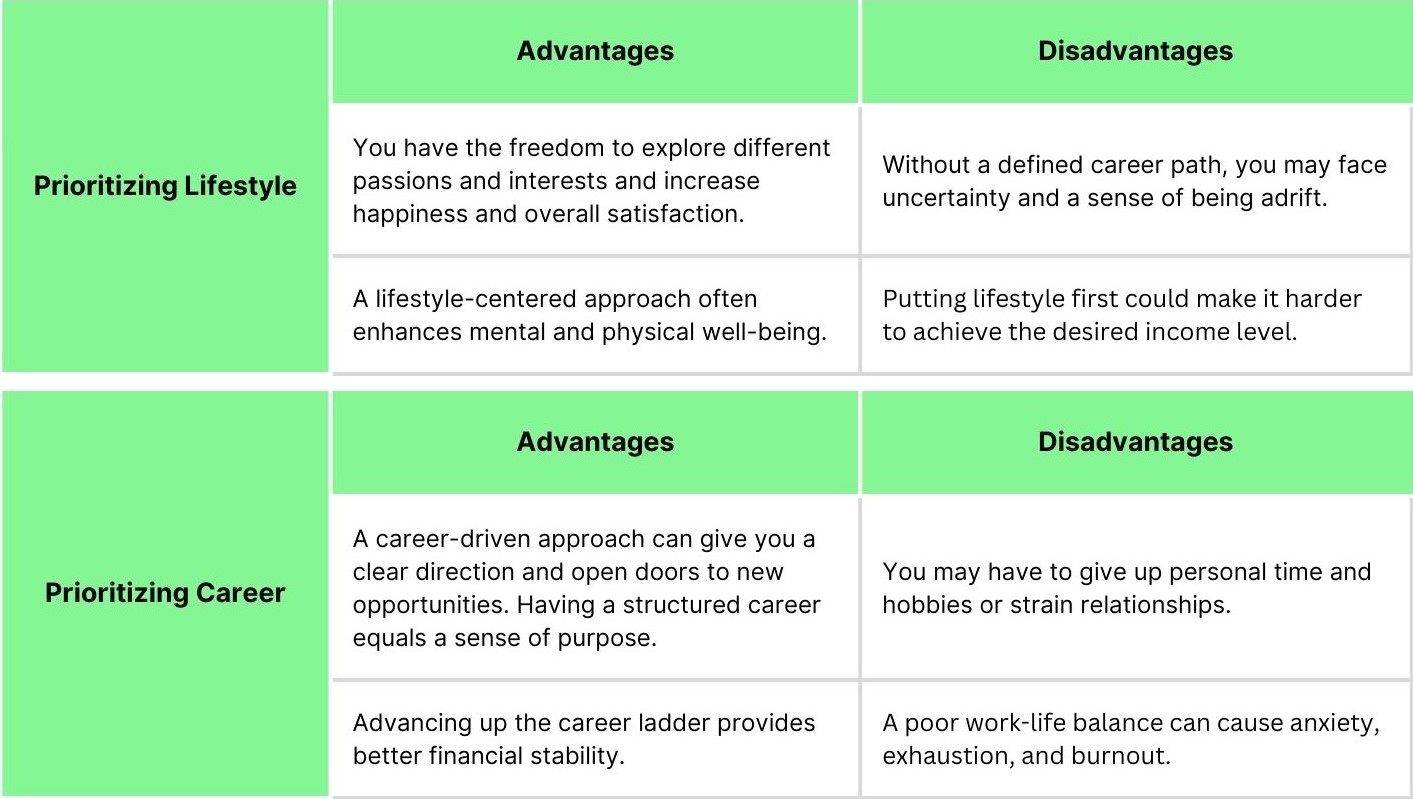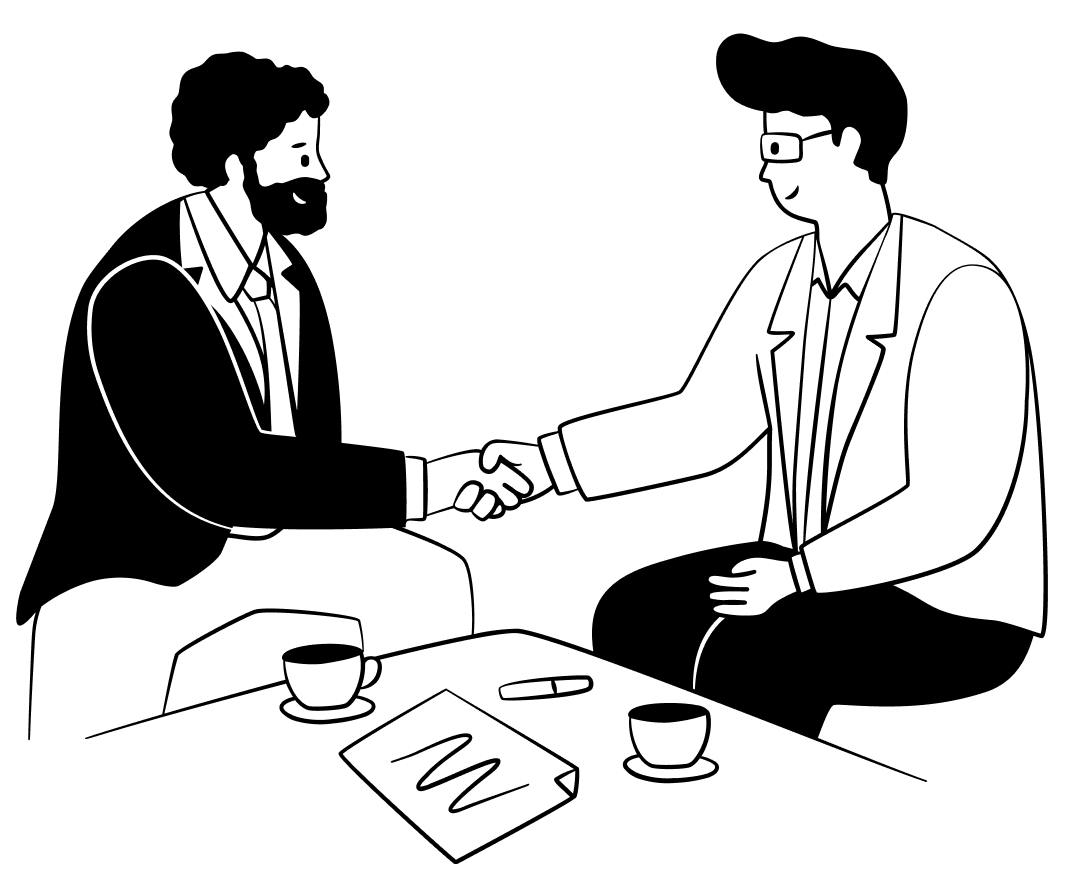In the process of seeking guidance to address life challenges or career challenges in particular, you may find yourself unsure about the best type of support to pursue. With many coaching options like lifestyle coaching, business coaching, relationship coaching, career coaching, or mentorship available, you need to determine which path will best serve your goals and circumstances.
Any coaching nurtures self-development overall. Career coaching narrows down to career development questions. What is mentoring, then? One by one, we will clarify the most common types: lifestyle coaching, career coaching, and mentorship.
Can lifestyle coaching cover all?
Lifestyle coaching covers all aspects of life, from relationships, wellness, and leisure to careers. But speaking about the last one on the list, a life coach touches on the essentials of career guidance, while a career coach centers around your professional goals and practices to achieve them.
The goal of a lifestyle coach is to help you enhance your quality of life:
- Do you live a fulfilling life? Can you balance its aspects, like work and self-care? What areas of personal growth would make a positive impact on your life?
- Do your habits, daily routine, and personal goals match your values?
- What are habits or negative patterns holding you back from your desired lifestyle?
- Do you have a good work-life balance?
For whom is lifestyle coaching?
For everyone who needs to:
- Address challenges in their life holistically and from a broader perspective, including relationships, personal development, health, career, and other parts
- Set realistic personal goals
- Achieve overall happiness
Is career coaching just about jobs, or does it also improve well-being?
Career coaching keeps the focus not only on finding a new job for you or following a career roadmap. In addition, a career development coach teams up with you to be satisfied with work-life balance, confident while negotiating salary and promotions, and able to set boundaries and say “no” when required. Since, in truth, careers take up a significant portion, about a third, of our lives.
Career consultants use career-focused techniques that contribute to personal well-being, like systemic coaching, positive psychology, cognitive behavioral therapy coaching, and gestalt psychology. This is how career coaching works.
The goal of a personal career coach is to help you with career building, transition, and advancement:
- What do you really want in your career right now? More purpose? A chance to grow?
- How does the new role line up with your personal values and skills?
- Does the company you work at have room for you to grow over time?
For whom is career coaching?
For everyone who needs to:
- Maintain professional growth and develop new skills
- Smoothly change career direction without unpredictable risks
- Get job search strategies, resume crafting, and interview preparation
- Set career-related goals and create actionable career plans

What sets mentorship apart from coaching?
Mentorship is when someone more experienced (mentor), a senior partner in your industry or a professional beyond, shares knowledge, insights, and advice to help you (mentee) navigate your career or personal development.
Mentorship involves solving specific requests, situations, or tasks that a mentee faces. A mentor is a person who has walked a similar path and can now offer an informed perspective that reveals the bigger picture. This relationship provides both strategic insights and practical know-how.
For whom is mentoring?
For everyone who doesn’t require long-term relationships, who needs an expert for occasional support without a deep dive and to:
- Increase motivation
- Have technical assistance tied to their profession or area of work
- Feel a sense of connection and build a network
The common ground of lifestyle coaching, career coaching, and mentoring
Lifestyle and career coaching prioritize small steps you can take today toward your goals. Both coaching types expect you to follow the actionable plan, measure results, and define success indicators. The mentoring style is more form-free, often without a strict structure, but you can still define your goals.
Lifestyle coaching, career coaching, and mentoring are centered on a personalized, unique approach. All three encourage you to step back and reflect on your experience.
Summary
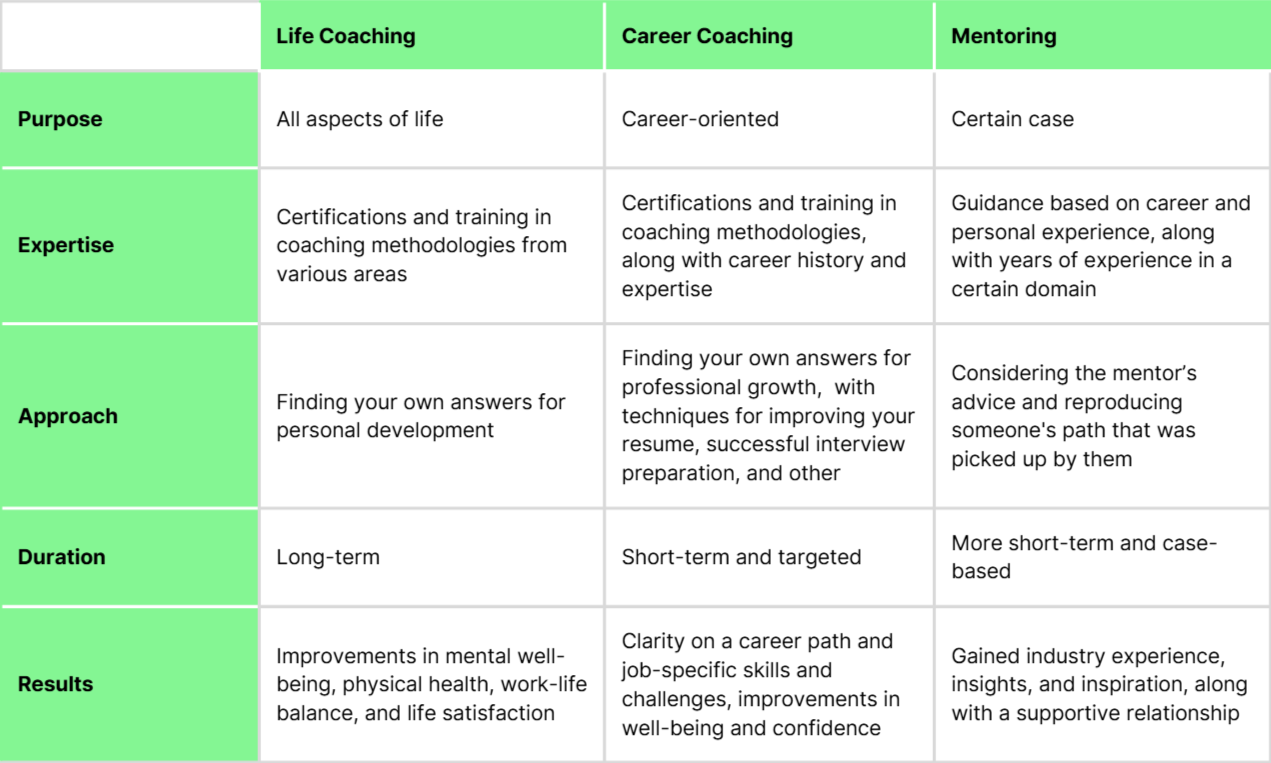
Can I check one right now? What about career guidance services?
You will surely benefit from any form of coaching and mentoring. Coaching is your elevator for better self-awareness, social connections, mental health, and balance in all aspects of life.
If you aim for career goals and solutions, the Amy platform has a library of career self-coaching exercises and career coaches to reach out to. Take a step toward your career advancement with career coaching.





